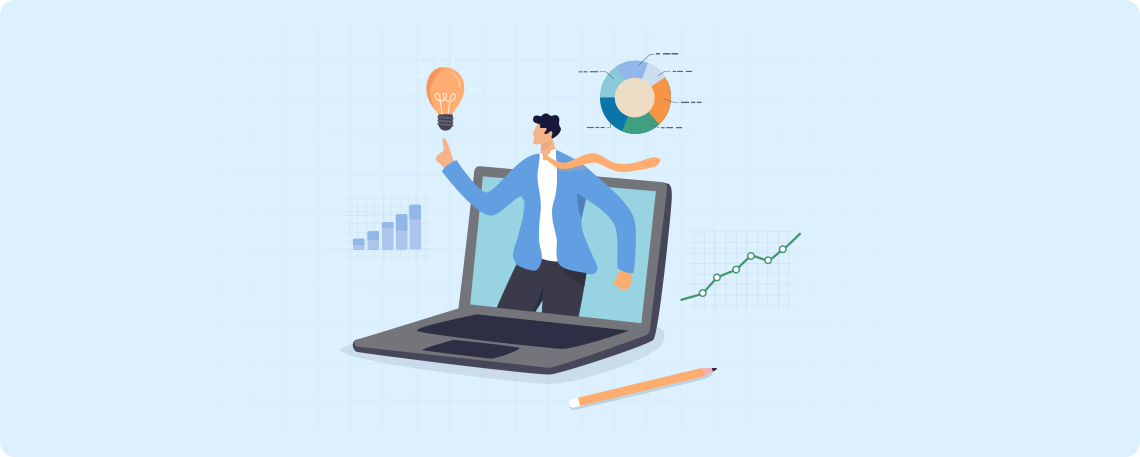Why Trade Intraday? Go to Las Vegas Instead!!!
July 26, 2024
|
In today’s fast-paced world, the allure of making quick money through intraday trading is undeniable. The idea of waking up, making a few trades, and ending the day significantly wealthier is a dream for many. Imagine this: you start your day at 09:15 am, invest Rs. 20,000 with a 5X exposure, and by 10:30 am, your stock goes up by 5%, netting you Rs. 1,000. Repeat this daily for 250 trading days, and you could potentially earn Rs. 2.5 lakhs in a year. Sounds too good to be true? Well, it probably is.
The Harsh Reality: The Odds Are Against You
A study conducted by SEBI (Securities and Exchange Board of India) revealed a stark reality: 7 out of 10 individual intraday traders in the equity cash segment incurred losses in FY 2022-23. The number of participants in intraday trading surged by over 300% compared to FY 2018-19, with a significant portion of these traders being under the age of 30. Yet, despite the increasing popularity, the majority ended up on the losing side.
Here are some key findings from the SEBI study:
- Around one in three individuals trading in the equity cash segment trades intraday.
- 70% of these traders incurred losses, with the figure rising to 80% for those with very frequent trading activity (over 500 trades a year).
- Younger traders (under 30 years) were particularly vulnerable, with 76% experiencing losses.
- Loss-makers not only lost their trading capital but also spent an additional 57% of their losses on trading costs.
These statistics paint a grim picture for anyone considering intraday trading as a reliable source of income.
Why Intraday Trading Doesn't Work for Most
The belief that anyone can succeed in intraday trading is a dangerous myth. While the success stories of the top 1% who make substantial profits may be inspiring, they are far from the norm. The reality is that intraday trading is a zero-sum game, where for every winner, there’s a loser. When you factor in commissions and other costs, it often becomes a negative-sum game for retail traders.
- Lack of Professional Resources and Skills
Most professional traders, whether on Dalal Street or Wall Street, have access to advanced tools, first-hand information, and a team of analysts. They also trade with other people's money, significantly reducing their personal risk. In contrast, retail traders often lack these resources and end up using their own money, making it much harder to break even, let alone make a profit. - Emotional and Psychological Stress
Intraday trading can be incredibly stressful, affecting your health and well-being. The constant ups and downs can lead to anxiety, poor sleep, and even depression. The pressure to make quick decisions can result in impulsive actions, often leading to further losses. - High Costs and Hidden Expenses
Intraday trading involves various costs, including brokerage fees, taxes, and other charges. For example, a single day's trading might incur service tax, Security Transaction Tax (STT), stamp duty, and regulatory charges, quickly eroding any profits. These expenses add up and can significantly impact your overall returns. - Unreliable Tips and Advice
Many retail traders rely on tips from so-called social media market experts. However, these tips are often unreliable, and following them can lead to significant losses. Moreover, relying on external advice prevents traders from developing their own skills and understanding of the market. - Gambling Mentality
Intraday trading is often compared to gambling, and for good reason. The market’s unpredictable nature means that even the best strategies can fail. Many traders end up relying on hope rather than a solid plan, leading to desperate decisions and more losses.
The Better Alternative: Long-term Investing
If you're serious about making money in the stock market, consider long-term investing instead. Unlike intraday trading, which relies on short-term price movements, long-term investing focuses on the fundamental strength of companies. By researching and understanding a company's business model, financials, and market position, you can make more informed investment decisions.
Well-known investors like late Shri Rakesh Jhunjhunwala, Warren Buffet, Peter Lynch, and Bill Gross have built their fortunes through long-term investing, not trading. The majority of successful investment books are written by or about long-term investors, not day traders.
Conclusion: Choose Wisely
Intraday trading is a high-risk activity that, for most people, leads to losses rather than gains. The statistics and personal stories of countless traders support this conclusion. Rather than trying to beat the odds in a game stacked against you, consider more sustainable and less stressful alternatives like long-term investing.
Remember, there are no shortcuts to wealth, especially in the stock market. So, think twice before diving into intraday trading. Instead, invest time in understanding the market, researching companies, and making informed decisions. In the long run, this approach is far more likely to yield positive results. Happy investing!
For more details, refer to the SEBI study attached. The source of these statistics can be found on SEBI's official website: SEBI.












